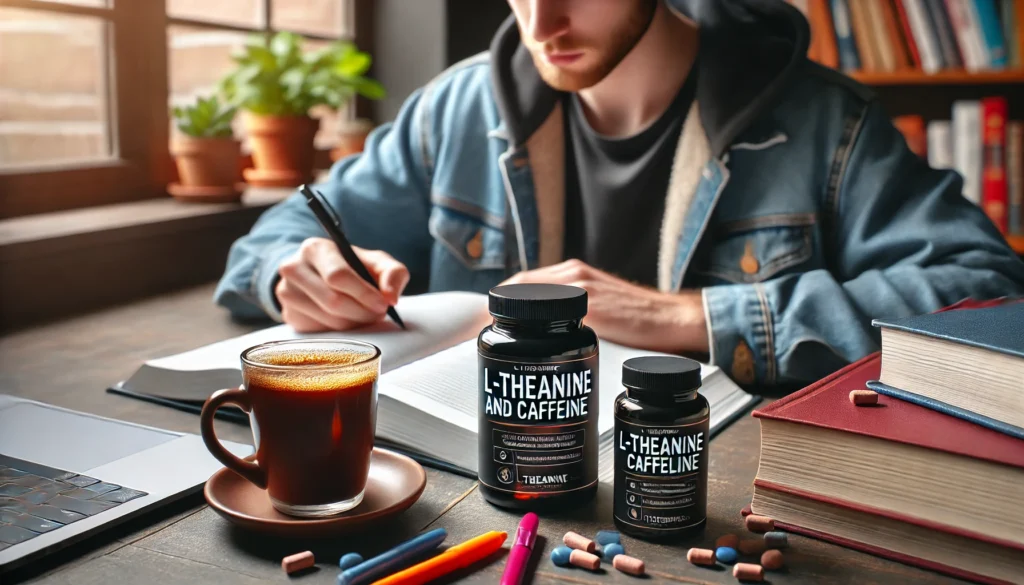Nootropics have been a topic of interest since the 1960s when Romanian psychologist and chemist Dr. Corneliu E. Giurgea synthesized Piracetam, a cognitive enhancer that laid the groundwork for the term “nootropic.” The word nootropic is derived from the Greek words “nous,” meaning mind, and “tropein,” meaning to bend or turn. Thus, nootropics are designed to “bend the mind” toward improved cognitive function.
You may also like: Top Nootropic Brands for Enhanced Focus

Historical Background
The concept of enhancing cognitive abilities isn’t new. Ancient civilizations used various herbs and plants believed to boost mental capacities. However, it wasn’t until the 20th century that scientific exploration of these substances began in earnest. Dr. Giurgea’s work with Piracetam in the 1960s marked a turning point, leading to an explosion of interest in synthetic and natural compounds that could improve mental performance.
Natural vs. Synthetic Nootropics
Nootropics can be broadly classified into natural and synthetic categories. Natural nootropics include herbs, amino acids, and other organic compounds that have been traditionally used for their cognitive benefits. Synthetic nootropics are man-made compounds created in laboratories to target specific aspects of brain function. Each type has its own benefits and drawbacks, often depending on the user’s personal needs and health considerations.
Mechanisms of Action
Understanding how nootropics work involves delving into their mechanisms of action. Most nootropics influence neurotransmitters, the chemicals in the brain responsible for transmitting signals. They may increase the availability of these neurotransmitters, improve blood flow to the brain, or provide neuroprotective effects. The exact mechanisms can vary widely between different nootropics, which is why understanding each substance individually is crucial.
Best Nootropics for Studying
Caffeine
Caffeine is perhaps the most widely consumed psychoactive substance globally, known for its ability to increase alertness and concentration. Found in coffee, tea, and energy drinks, caffeine works by blocking adenosine receptors in the brain, which helps reduce feelings of fatigue. While not a traditional nootropic, its stimulating effects make it a favorite among students.
Sources and Consumption
Caffeine is readily available in various forms, including coffee, tea, energy drinks, and supplements. Each source offers different concentrations, allowing users to choose based on their tolerance and preferences. It’s crucial to monitor intake, as excessive consumption can lead to jitters and decreased focus.
Benefits Beyond Alertness
While caffeine is primarily known for increasing alertness, it also offers other cognitive benefits. It can enhance mood, improve reaction time, and even increase memory retention in some cases. This makes it a versatile tool for students during study sessions or exams.
Managing Caffeine Usage
Responsible caffeine consumption is key. Overreliance can lead to dependency and diminished effects over time. Students should aim to balance their caffeine intake with adequate hydration and nutrition to avoid negative side effects such as anxiety or insomnia.
L-Theanine
Often paired with caffeine, L-Theanine is an amino acid primarily found in tea leaves. It is known for its calming effects without causing drowsiness. When combined with caffeine, L-Theanine is said to improve attention, memory, and focus, creating a balanced cognitive state ideal for studying.
Synergistic Effects with Caffeine
The combination of L-Theanine and caffeine is popular for its synergistic effects. While caffeine provides stimulation, L-Theanine promotes relaxation without sedation, creating a state of calm alertness. This balance is particularly beneficial for tasks requiring sustained concentration and focus.
Sources and Dosage
L-Theanine is naturally present in green tea, but it can also be taken as a supplement. The ideal dosage often varies depending on individual needs, but a common ratio is 2:1 of L-Theanine to caffeine. This combination can enhance cognitive performance without the common side effects of caffeine alone.
Stress Reduction and Cognitive Enhancement
Beyond its cognitive benefits, L-Theanine is known for reducing stress and improving mood. It can help mitigate the anxiety that often accompanies academic pressures, allowing students to maintain a clearer mind during challenging study periods.
Bacopa Monnieri
Bacopa Monnieri is an ancient herb used in Ayurvedic medicine for centuries. It is renowned for its potential to enhance memory and learning. Some studies suggest that Bacopa Monnieri may help improve cognitive function and reduce anxiety, making it a popular choice for students looking to enhance academic performance.
Historical Use and Modern Research
Traditionally used in Indian medicine, Bacopa Monnieri has gained attention in modern research for its cognitive-enhancing properties. Studies indicate it may improve memory recall and learning speed, offering significant benefits for academic pursuits.
Mechanisms of Action
Bacopa Monnieri is believed to exert its effects by enhancing the communication between neurons. It may also promote the growth of dendrites, which are crucial for processing information in the brain. These mechanisms contribute to its potential as a memory enhancer.
Dosage and Long-term Effects
While Bacopa Monnieri is generally considered safe, it is essential to adhere to recommended dosages to avoid gastrointestinal side effects. Long-term use is typically more beneficial, as its cognitive effects tend to accumulate over time.
Rhodiola Rosea
Rhodiola Rosea is an adaptogenic herb known for its ability to combat fatigue and enhance mental performance. It is believed to increase the brain’s capacity to process information and improve concentration, especially under stressful conditions. This makes it an excellent choice for students facing demanding academic schedules.
Adaptogenic Properties
As an adaptogen, Rhodiola Rosea helps the body adapt to stress and maintain balance. It is particularly effective in reducing mental fatigue, which can be a significant barrier to effective studying and exam performance.
Cognitive and Physical Benefits
Rhodiola Rosea not only boosts cognitive function but also enhances physical endurance. This dual benefit can be particularly advantageous during periods of intense academic and extracurricular demands.
Optimal Usage and Considerations
For best results, Rhodiola Rosea should be used as part of a balanced routine that includes adequate rest and nutrition. While generally safe, consulting with a healthcare provider before beginning supplementation can ensure it aligns with individual health needs.

Cognitive Enhancers and Their Benefits
While natural nootropics like those mentioned above are popular, synthetic cognitive enhancers are also available. These substances are designed to enhance specific cognitive functions and are often used under medical supervision.
Modafinil
Modafinil is a prescription medication used to treat narcolepsy and other sleep disorders. However, it is also used off-label as a cognitive enhancer. Modafinil is believed to promote wakefulness and improve focus, making it a go-to option for students preparing for exams or pulling all-nighters.
Mechanism of Action
Modafinil works by altering neurotransmitters in the brain, particularly those related to wakefulness and alertness. This makes it effective for improving focus and reducing the need for sleep during critical study periods.
Benefits and Risks
While Modafinil can enhance cognitive performance, it is essential to consider potential side effects, including headaches, nausea, and anxiety. It should only be used under medical supervision, particularly due to its off-label use.
Legal and Ethical Considerations
As a prescription drug, Modafinil’s use among students raises legal and ethical questions. It is crucial to obtain it through legitimate medical channels and consider the implications of using such a powerful cognitive enhancer.
Racetams
Racetams, including Piracetam, Aniracetam, and Oxiracetam, are a class of synthetic nootropics known for their cognitive-enhancing properties. They are believed to improve memory, learning, and overall brain function. Though their exact mechanism of action is not fully understood, racetams are thought to increase the efficiency of neurotransmitters in the brain.
Class Overview
Racetams represent a diverse class of nootropics, each with unique properties. They are often used to enhance memory, focus, and creativity, making them appealing for academic purposes. Despite their popularity, ongoing research is necessary to fully understand their mechanisms and long-term effects.
Usage Guidelines
When using racetams, starting with a low dose and gradually increasing it is recommended. This approach helps monitor individual tolerance and minimize potential side effects. Combining racetams with a choline source may enhance their effectiveness and prevent headaches.
Safety and Research
Racetams are generally considered safe, but as with all nootropics, individual reactions can vary. Continued research is crucial to determine their long-term safety and efficacy. Students should remain informed about new findings to make responsible choices.
Balancing Science and Practicality
As with any substance, the use of nootropics should be approached with caution. It’s essential to consider the balance between scientific evidence and practical application. While some nootropics have been extensively studied, others require more research to fully understand their long-term effects and safety.
The Importance of Safe Usage
Before incorporating nootropics into your study routine, it’s crucial to consult with a healthcare professional, especially when considering synthetic options. Understanding potential side effects and interactions with other medications is vital for safe usage.
Consulting Professionals
Engaging with healthcare professionals provides insights into the safe use of nootropics. They can help assess individual health needs and potential interactions with other medications. This step is crucial for mitigating risks and ensuring that nootropics are used effectively.
Monitoring and Adjustments
Once nootropics are integrated into a routine, ongoing monitoring is essential. Students should pay attention to any changes in cognition or side effects, making adjustments as necessary. This proactive approach ensures that cognitive enhancers contribute positively to academic performance.
Ethical Considerations
The ethical implications of using nootropics, particularly synthetic ones, should be considered. Students must weigh the potential benefits against the risks and legal aspects of using cognitive enhancers, ensuring their choices align with personal and academic integrity.
Future Implications
The field of nootropics is ever-evolving, with ongoing research exploring new possibilities for cognitive enhancement. As our understanding of brain function continues to grow, so too does the potential for new and innovative nootropic substances. Staying informed about the latest developments can help students make educated decisions about their use of cognitive enhancers.
Emerging Research
The landscape of nootropic research is dynamic, with new studies continuously emerging. Keeping abreast of these developments can offer insights into more effective or safer cognitive enhancers. Students should remain open to adjusting their nootropic choices based on the latest scientific findings.
Technological Advancements
Advancements in technology, particularly in neuroscience, are likely to influence the future of nootropics. As we develop more sophisticated tools for understanding the brain, the potential for more targeted and personalized nootropic solutions increases. This could revolutionize how students approach cognitive enhancement.
Societal and Educational Impact
As nootropics become more prevalent, their societal and educational impacts will become more evident. Discussions around accessibility, fairness, and ethical use in academic settings will likely intensify. Students should remain engaged in these conversations to understand the broader implications of their cognitive enhancement choices.

Conclusion
For students seeking to boost their academic performance, nootropics offer a range of options that may enhance cognitive function, memory, and concentration. From natural substances like caffeine and Bacopa Monnieri to synthetic options like Modafinil and racetams, the choice ultimately depends on individual needs and preferences.
By understanding the benefits and risks associated with these substances, students can make informed decisions that align with their academic goals while prioritizing safety and well-being. As the landscape of cognitive enhancement continues to evolve, staying informed and cautious remains the key to maximizing the potential benefits of nootropics.
Personalizing Your Approach
Every student’s cognitive needs are unique, and nootropics should be chosen based on personal goals and health considerations. Tailoring a nootropic regimen involves evaluating current academic demands, stress levels, and any underlying health conditions. This personalized approach ensures that cognitive enhancers are used effectively and safely.
Staying Informed and Responsible
The world of nootropics is constantly changing, with new research findings and products emerging regularly. Students should commit to staying informed about these developments to make educated decisions. Responsible use involves not only self-awareness but also understanding the broader ethical and societal implications of cognitive enhancement.
Building a Holistic Study Routine
Nootropics can be a valuable component of a broader study strategy. Students should aim to integrate cognitive enhancers with other effective study practices, such as regular breaks, adequate sleep, and balanced nutrition. This holistic approach ensures that nootropics contribute positively to academic success and overall well-being.
Further Reading:
The 14 Best Nootropics and Smart Drugs Reviewed
What are nootropics, or ‘smart drugs’?
Important Note: The information contained in this article is for general informational purposes only, and should not be construed as health or medical advice, nor is it intended to diagnose, prevent, treat, or cure any disease or health condition. Before embarking on any diet, fitness regimen, or program of nutritional supplementation, it is advisable to consult your healthcare professional in order to determine its safety and probable efficacy in terms of your individual state of health.
Regarding Nutritional Supplements Or Other Non-Prescription Health Products: If any nutritional supplements or other non-prescription health products are mentioned in the foregoing article, any claims or statements made about them have not been evaluated by the U.S. Food and Drug Administration, and such nutritional supplements or other health products are not intended to diagnose, treat, cure, or prevent any disease.


